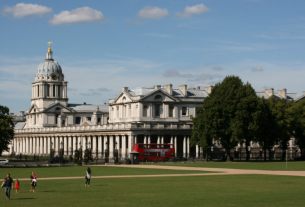2024 HARPER PRIZE SHORTLIST: For the next two weeks, we are featuring the articles shortlisted for the 2024 Harper Prize. The Harper Prize is an annual award for the best early career research paper published in Journal of Ecology. Karl Andraczek‘s ‘Weak reciprocal relationships between productivity and plant biodiversity in managed grasslands’ is one of those shortlisted for the award.

About the paper:
- What is your shortlisted paper about, and what are you seeking to answer with your research?
Global change impacts both plant diversity and ecosystem functioning and predicting these consequences has emerged as a focal topic in ecology. However, because of complex feedback effects between diversity and productivity, making predictions is difficult. Another challenge is to account for their complex interaction with environmental factors jointly controlling diversity and productivity, likely confounding their observed relationships in natural systems.
We proposed a solution to resolve feedbacks between diversity and productivity by using causal inference methods – underutilized in ecology. We combined this with high-resolution temporal data on plant diversity and productivity measured at multiple times across the growing season.
- Were you surprised by anything when working on it? Did you have any challenges to overcome?
We were surprised to find only weak feedbacks between plant diversity and productivity in our managed grasslands, likely because of intensive management practices. Further, we also found weak effects of productivity on biodiversity, contrasting both the strong negative relationships often observed in managed grasslands and the positive relationships seen in biodiversity-ecosystem functioning experiments. These weak effects likely emerge, because mowing/grazing prevent negative effects of productivity on biodiversity. However, our ecological conclusion was highly sensitive to the models used. Thus, our modelling approach led to more robust predictions compared to more conventional models!

- What is the next step in this field going to be?
Our findings highlight that temporal data, in combination with ‘causal inference’ methods, form a promising tool to better understand feedbacks between plant diversity and productivity in natural systems. This also has important implications for elucidating how both will respond to climate change, which I am planning to work on as part of a postdoc fellowship together with ecologists from Colorado (USA), and Utrecht University (The Netherlands). Excitingly, in this project we plan to work with some of the largest grassland Networks, the Nutrient Network and the DroughtNet, enabling me to study diversity-productivity feedbacks in current and more extreme, future climates.
- What are the broader impacts or implications of your research for policy or practice?
Our work indicates that management, such as grazing and mowing, is a key factor modifying biodiversity-productivity relationships. But even beyond grasslands, our framework has broad applications by offering a powerful tool for studying feedback loops in natural systems. These insights are particularly relevant for policymakers and land managers, as they underscore the importance of considering management practices when predicting biodiversity and productivity responses to global change. This is even more important, since biodiversity-ecosystem functioning feedbacks are often overlooked in global policy, potentially preventing us from realizing the full benefits of actions we can take to enhance sustainability.
About the author:
- How did you get involved in ecology?
I grew up in Germany, where exploring the ancient oak forests and rich grasslands of Thuringia was a central part of my childhood. Inspired by great journals like National Geographic, I initially planned to become a journalist writing about nature’s wonders. However, after working on remote farms in Japan as a gap year after school, I slowly realized that I wanted to explore nature from a different perspective. I decided to study biology, and eventually got hooked by ecology because of the wonderful work of Christian Wirth and Alexandra Weigelt in the grasslands and floodplain forests of Leipzig.
- What is your current position?
After completing my graduate studies, I began working as an independent postdoctoral fellow at the Integrative Centre for Biodiversity Research (iDiv), exploring the role of belowground diversity in ecosystem functioning across open ecosystems under climate change. This project is particularly exciting because, I had the opportunity to design a completely new research project while collaborating with an incredible team. It is also thrilling due to the diverse ecosystems I study, ranging from the cold polar regions of Alaska to the hot savannas of South Africa.
- Have you continued the research your paper is about?
I now investigate biodiversity-ecosystem functioning relationships from a different, more hidden perspective — belowground. This approach is key to better understanding the mechanisms underlying the relationship between plant biodiversity and ecosystem functioning, which is often studied only from an aboveground perspective.
Beyond this, I am working with Laura Dee (USA), Yann Hautier (The Netherlands), Melinda Smith (USA), and Katie Barry (The Netherlands) on a grant proposal for a follow-up project. This project will allow me to apply the methods from this study to unravel the dynamic feedbacks between biodiversity and productivity in both current and future climates.
- What one piece of advice would you give to someone in your field?
Disentangling the complex interplay between diversity and productivity is a daunting challenge. At times, I nearly lost faith in solving this riddle but found tremendous inspiration by working closely with other researchers. I firmly believe that no one can tackle the pressing problems of our time alone — teamwork is essential! This paper succeeded because of collaboration, open discussions, and shared experiences with fellow scientists.
My advice: when facing seemingly unsolvable problems, talk to people! Don’t hesitate to reach out to other scientists, even if your questions feel superficial. You’ll be surprised by how supportive the scientific community can be.
Find the other early career researchers and their articles that have been shortlisted for the 2024 Harper Prize here!

